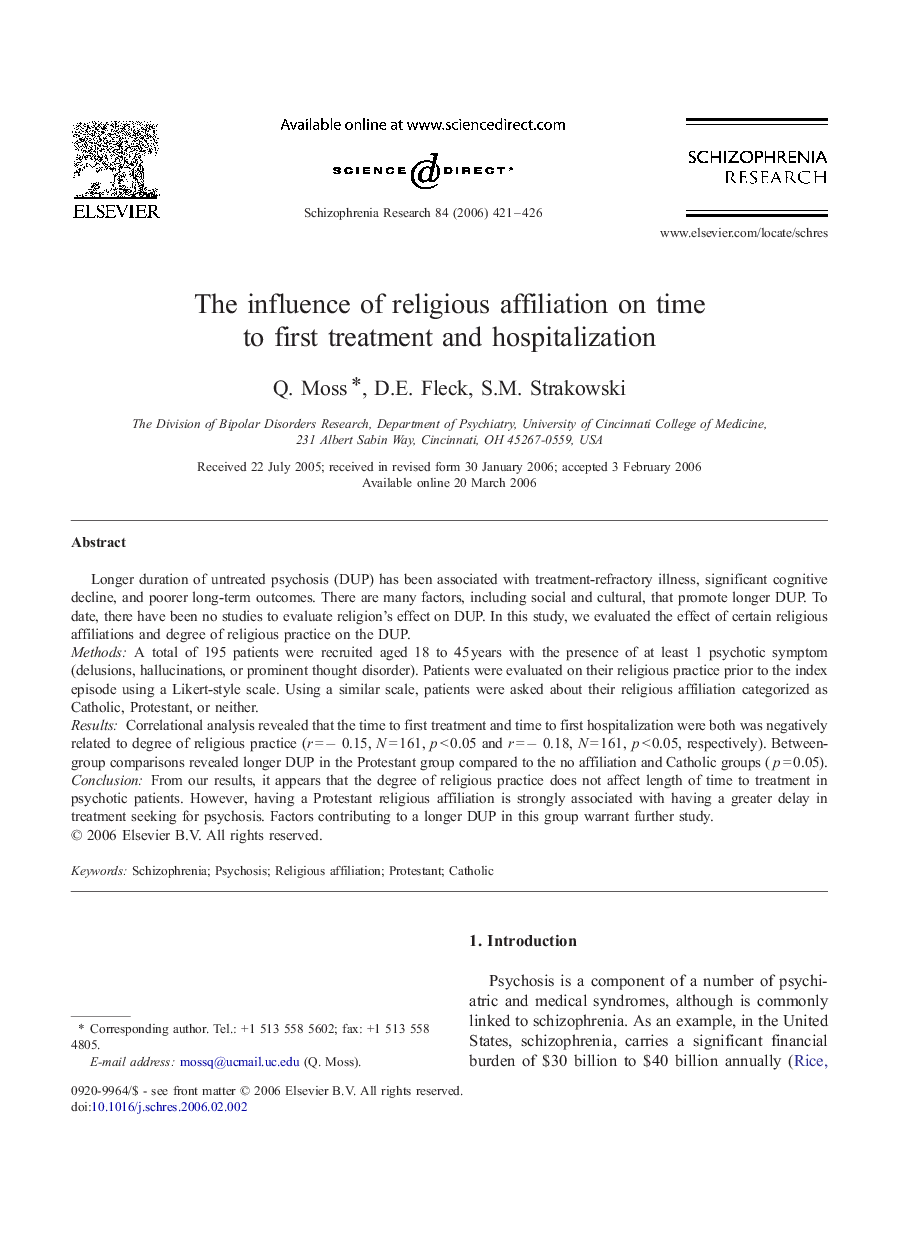| Article ID | Journal | Published Year | Pages | File Type |
|---|---|---|---|---|
| 338926 | Schizophrenia Research | 2006 | 6 Pages |
Longer duration of untreated psychosis (DUP) has been associated with treatment-refractory illness, significant cognitive decline, and poorer long-term outcomes. There are many factors, including social and cultural, that promote longer DUP. To date, there have been no studies to evaluate religion's effect on DUP. In this study, we evaluated the effect of certain religious affiliations and degree of religious practice on the DUP.MethodsA total of 195 patients were recruited aged 18 to 45 years with the presence of at least 1 psychotic symptom (delusions, hallucinations, or prominent thought disorder). Patients were evaluated on their religious practice prior to the index episode using a Likert-style scale. Using a similar scale, patients were asked about their religious affiliation categorized as Catholic, Protestant, or neither.ResultsCorrelational analysis revealed that the time to first treatment and time to first hospitalization were both was negatively related to degree of religious practice (r = − 0.15, N = 161, p < 0.05 and r = − 0.18, N = 161, p < 0.05, respectively). Between-group comparisons revealed longer DUP in the Protestant group compared to the no affiliation and Catholic groups (p = 0.05).ConclusionFrom our results, it appears that the degree of religious practice does not affect length of time to treatment in psychotic patients. However, having a Protestant religious affiliation is strongly associated with having a greater delay in treatment seeking for psychosis. Factors contributing to a longer DUP in this group warrant further study.
